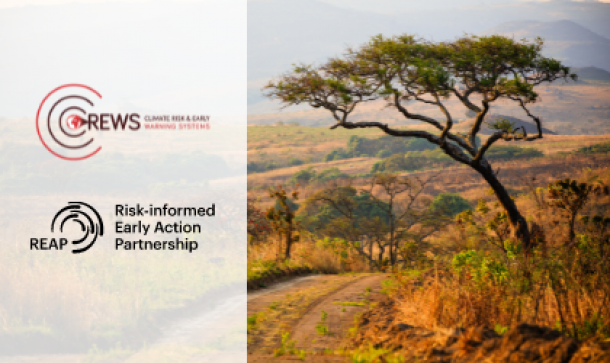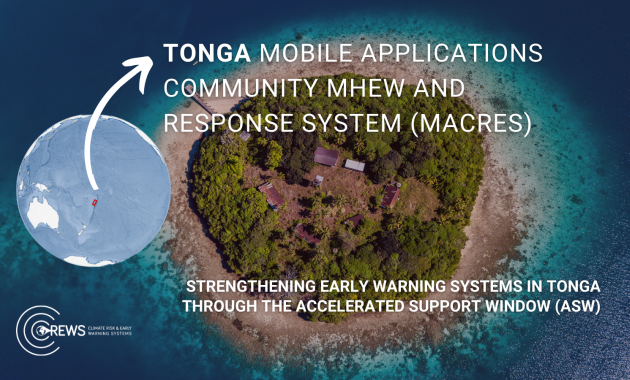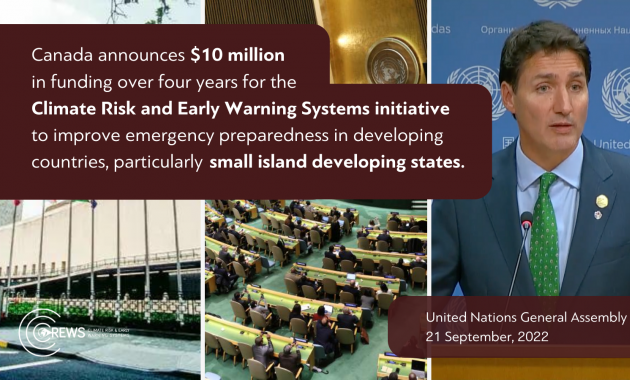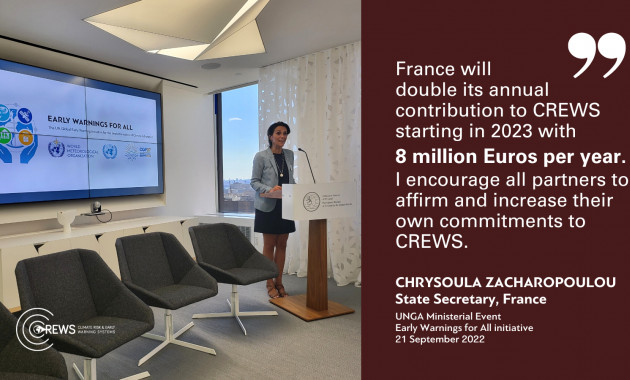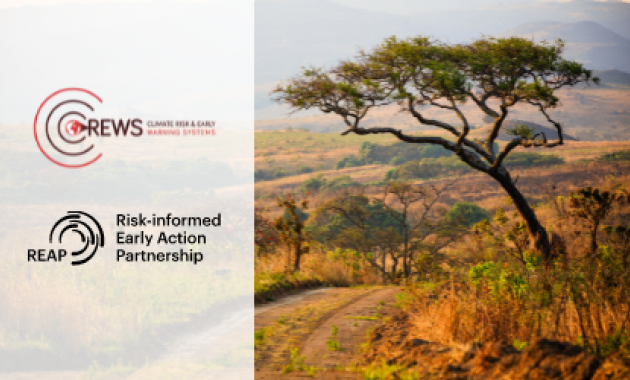Impact-based forecasts that inform the public of what the weather will do rather than what weather will be are vital to save lives and livelihoods. Yet one in three people are still not adequately covered by early warning systems. Being prepared and able to act at the right time, in the right place, can save many lives and protect the livelihoods of communities everywhere, both now and in the future. As such, the Risk-informed Early Action Partnership is delighted to welcome its newest Partner, the Climate Risk & Early Warning Systems (CREWS) Initiative.
CREWS is a mechanism that funds Least Developed Countries (LDCs) and Small Island Developing States (SIDS) for risk-informed early warning services, supported by three Implementing Partners: the World Meteorological Organization (WMO), the United Nations Office for Disaster Risk Reduction (UNDRR), and the World Bank/Global Facility for Disaster Risk Reduction (GFDRR).
CREWS works directly with countries to increase the availability of, and access to, early warning systems. Country and regional projects are implemented by the countries with the support of the three Implementing Partners who provide technical assistance and capacity development.
The collaboration between CREWS and REAP will enhance common efforts on the improvement of early warning systems and the strengthening of early action, including early action financing. It will contribute to the recent call by the UN Secretary-General for all countries to be covered by early warning systems within the next five years. These efforts will save lives, protect livelihoods and improve the efficiency and effectiveness of response.
CREWS commits to contribute to the partnership with REAP by:
- Facilitating better linkage between Early Warning and Early Action
- Sharing of expertise and knowledge for more coordinated country programmes
- Donor analytics and funding alignment
- Identifying and targeting events for joint sessions
”REAP already contributes to the effectiveness of our financing of early warning systems with its clear targets, extensive network and convening ability. I look forward to further collaboration for the benefit of LDCs and SIDS,” said John Harding, Head of the CREWS Secretariat.
Ben Webster, Head of Secretariat for REAP, commented “CREWS is a fantastic addition to the Partnership. Working closely together we will be able to ensure that early warning systems are expanded and improved, and that climate risk information is delivered in a way which supports people-centred early action”.
CREWS draws attention to:
- Adopting a full value chain approach to building capacity and providing technical assistance for early warning systems, with people-centered, gender responsive and risk-informed operations that lead to early action.
- Early warning operations that are led by countries, aligned with best available norms and standards, drawing on the expertise and networks of its partners.
- Opportunities to enhance early warning solutions, from facilitated access to global and regional predictions, faster warning generation and wider dissemination, to better access and understanding by vulnerable populations.

